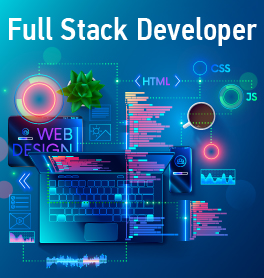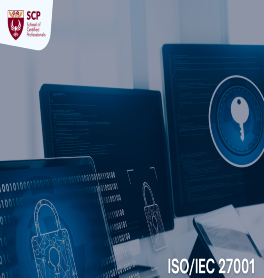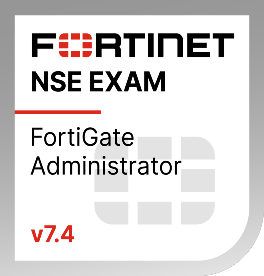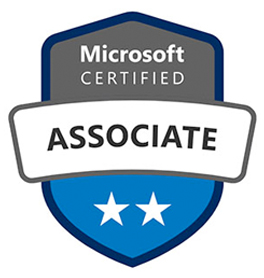Full Stack Training in Cyprus: Course Overview
The Comprehensive Full Stack Development Training program is meticulously designed to empower participants with the comprehensive skills and knowledge required to become proficient full stack developers in Greece. This immersive course covers both front-end and back-end technologies, enabling participants to create dynamic and robust web applications. Through a combination of hands-on projects, collaborative learning, and real-world application, participants will develop the expertise needed to excel in the dynamic field of full stack development.
Learning Objectives:
Upon completion of the Comprehensive Full Stack Development Training program, participants will be able to:
- Master Front-End Technologies:
- Gain a deep understanding of HTML, CSS, and JavaScript.
- Learn modern front-end frameworks like React or Angular for building interactive user interfaces.
- Explore Back-End Development:
- Dive into server-side programming using languages like Node.js, Python, or Ruby.
- Develop RESTful APIs for seamless communication between front-end and back-end.
- Database Management:
- Learn to design and manage databases using SQL and NoSQL technologies.
- Implement database operations for data storage and retrieval.
- Full Stack Application Architecture:
- Understand the architecture of full stack applications.
- Integrate front-end and back-end components for seamless functionality.
- Version Control and Collaboration:
- Utilize version control systems like Git for collaborative development.
- Work effectively in teams using branching and merging strategies.
- Responsive Web Design:
- Create responsive web applications that adapt to different devices and screen sizes.
- Implement CSS frameworks for efficient styling.
- Authentication and Security:
- Implement user authentication and authorization mechanisms.
- Understand security best practices to protect applications from vulnerabilities.
- Server Deployment and Hosting:
- Deploy applications to cloud platforms like AWS, Heroku, or Azure.
- Manage server configurations and hosting environments.
- Performance Optimization:
- Optimize application performance for faster load times and smoother user experience.
- Minimize network requests, optimize images, and improve code efficiency.
- Testing and Debugging:
- Implement testing strategies for both front-end and back-end components.
- Learn debugging techniques to identify and fix issues effectively.
- API Integration and Third-Party Services:
- Integrate third-party APIs and services to enhance application functionality.
- Explore options for integrating payment gateways, social media, and more.
- Project Management and Collaboration Tools:
- Utilize project management and collaboration tools for efficient teamwork.
- Plan, track, and organize tasks to ensure project success.
Target Audience:
The Comprehensive Full Stack Development Training Greece is ideal for individuals from diverse backgrounds who aspire to become skilled full stack developers. This program caters to:
- Developers: Those with a passion for coding and a desire to build complete web applications.
- Web Designers: Individuals looking to expand their skills and transition into full stack development.
- Tech Enthusiasts: Those interested in understanding the complete web development stack.
- Career Switchers: Professionals seeking a new career path in the field of software development.
Full Stack Development Training Curriculum
Duration: 20-24 weeks
Module 1: Introduction to Web Development and Version Control
- Introduction to web technologies (HTML, CSS, JavaScript)
- Setting up development environment (code editor, browser)
- Introduction to version control and Git
- Basic Git commands:
init,add,commit,status
Module 2: Modern JavaScript and ES6
- ES6 syntax and features
- Arrow functions, destructuring, spread/rest operators
- Promises and asynchronous programming
Module 3: React.js Basics
- Introduction to React.js and component-based architecture
- JSX syntax and rendering elements
- Components, props, and state management
- Handling events and forms in React
Module 4: Angular Basics
- Introduction to Angular framework and TypeScript
- Components, templates, and data binding
- Directives and pipes
- Services and dependency injection
Module 5: State Management and API Integration
- State management libraries (Redux for React, RxJS for Angular)
- Fetching data from APIs using
fetchandaxios - Integrating APIs into React and Angular applications
Module 6: Advanced Front-End Concepts
- Performance optimization techniques
- React Hooks and Context API
- Advanced Angular topics (NgRx for state management)
Module 7: Introduction to Back-End Development and RESTful APIs
- Overview of server-side programming
- Introduction to Node.js and Express.js framework
- Designing RESTful APIs
- Creating routes and handling HTTP methods in Express.js
Module 8: Databases and Data Modeling
- Introduction to databases (SQL and NoSQL)
- Working with databases using Node.js (MongoDB/Mongoose for NoSQL, Sequelize for SQL)
- Data modeling and relationships
Module 9: Authentication and Authorization
- User authentication strategies (JWT, OAuth)
- Implementing user registration and login functionality
- Securing routes and resources
Module 10: Deployment and DevOps
- Deployment strategies for front-end and back-end applications
- Introduction to containerization (Docker)
- Continuous integration and continuous deployment (CI/CD) using tools like Jenkins or GitLab CI/CD
Module 11: Real-time Applications
- Introduction to WebSockets
- Building real-time features using Socket.io
Module 12: Full Stack Project
- Building a complete full-stack web application from scratch
- Integrating front-end (React or Angular) with back-end (Node.js/Express)
- Implementing features learned throughout the course
- Deployment of the final project
Module 13: Testing, Debugging, and Security
- Writing unit tests for front-end and back-end code
- Debugging techniques and tools
- Cross-site scripting (XSS) and Cross-Site Request Forgery (CSRF) prevention
- Secure data storage and transmission

Feedback
Course Features
- Lectures 0
- Quizzes 0
- Duration 50 hours
- Skill level All levels
- Language English
- Students 0
- Certificate No
- Assessments Yes













